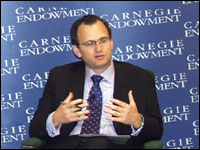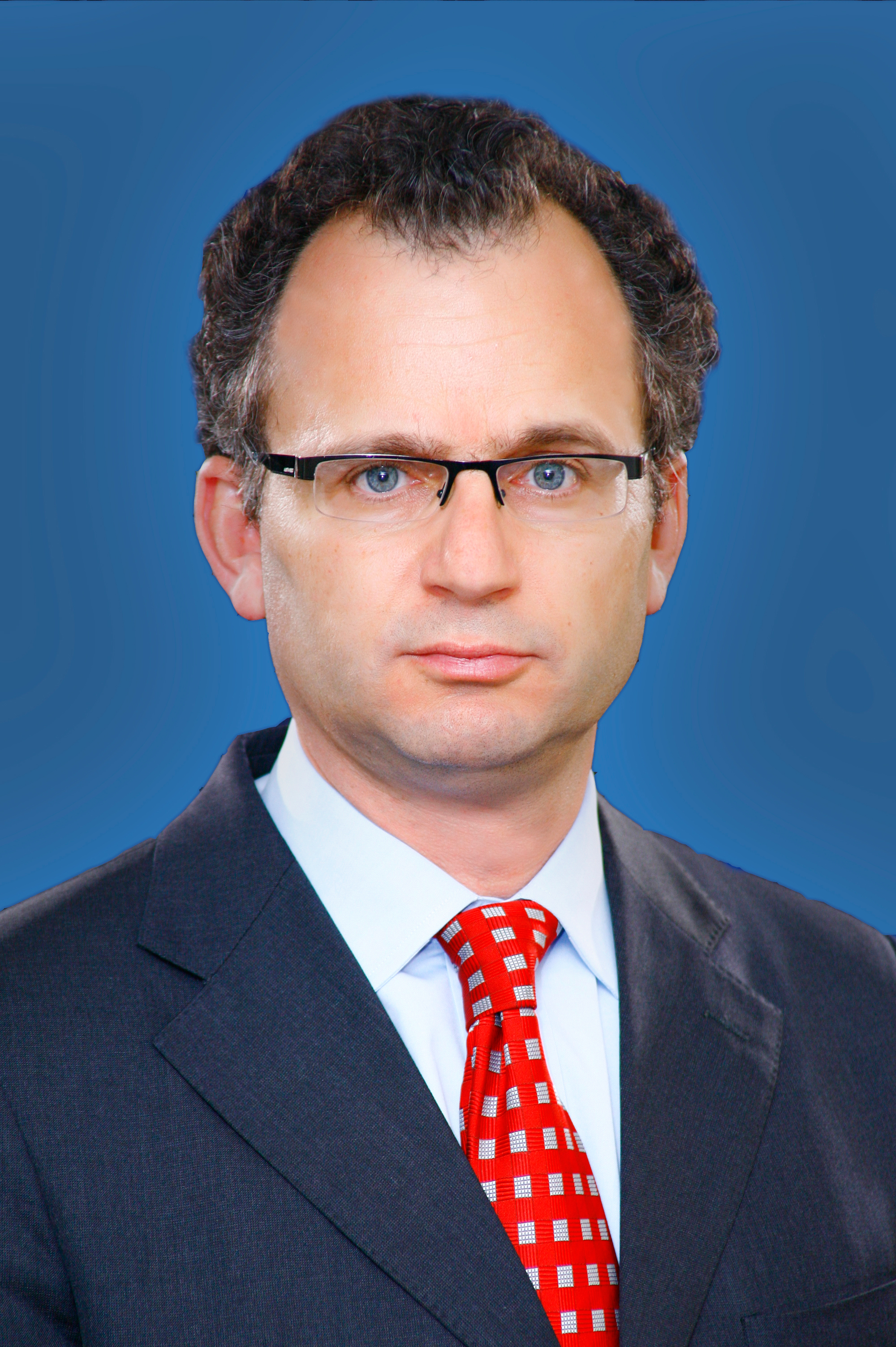{
"authors": [
"Paul Salem"
],
"type": "event",
"centerAffiliationAll": "dc",
"centers": [
"Carnegie Endowment for International Peace"
],
"collections": [],
"englishNewsletterAll": "",
"nonEnglishNewsletterAll": "",
"primaryCenter": "Carnegie Endowment for International Peace",
"programAffiliation": "DCG",
"programs": [
"Democracy, Conflict, and Governance",
"Middle East"
],
"projects": [],
"regions": [
"Middle East",
"Iran",
"Israel",
"Egypt",
"Iraq",
"Syria"
],
"topics": [
"Political Reform",
"Democracy",
"Security"
]
}
At the Center of the Storm: What Political Future for Lebanon?
Thu, August 3rd, 2006
Washington, D.C.
Presenter:
Paul Salem, Director-Designate, Carnegie Middle East Center
Moderator:
Thomas Carothers, Vice President, Carnegie Endowment
Paul Salem, the director-designate of the Carnegie Endowment’s Middle East Center, gave a special briefing on the recent events in Lebanon. After summarizing the recent history of Lebanon and Hizbollah, Salem emphasized the short- and long-term effects of Israeli military operations on the role of Hizbollah in southern Lebanon and Lebanese politics. In doing so, he noted how the group has been strengthened by increased popularity in Lebanon and the region while being weakened through casualties and exhausted weapons stockpiles.
Salem explained Israeli, U.S., Iranian, and Syrian policies toward the escalating violence. He stressed the tenuous position of the Lebanese coalition government, and the potential for political instability arising from heightened tensions within Lebanese society. Describing the war as a “staggering blow” to Lebanon, Salem also highlighted the disastrous damage to the country’s infrastructure and the large number of displaced persons, primarily from the predominantly Shi’ite south. Lastly, Salem addressed the need for the United States to take the lead in negotiating a peace between the parties both to end a war that neither side can win and to show that the United States can be a useful ally to Arab states. Salem emphasized that the conflict demonstrates that the Arab-Israeli conflict remains an inescapable reality in the region, one that must be tackled by the United States and others through serious, nuanced diplomacy.
During the subsequent question-answer period, participants raised issues concerning the nature and provisions of a viable peace negotiation, what effect the displacement of nearly one-million Lebanese citizens will have on the stability of the country, the capability of the Lebanese army and government, and the role of Syria as a supporter of Hizbollah and significant player in Lebanese politics.
Carnegie does not take institutional positions on public policy issues; the views represented herein are those of the author(s) and do not necessarily reflect the views of Carnegie, its staff, or its trustees.
